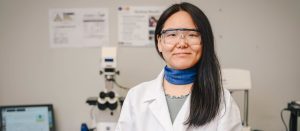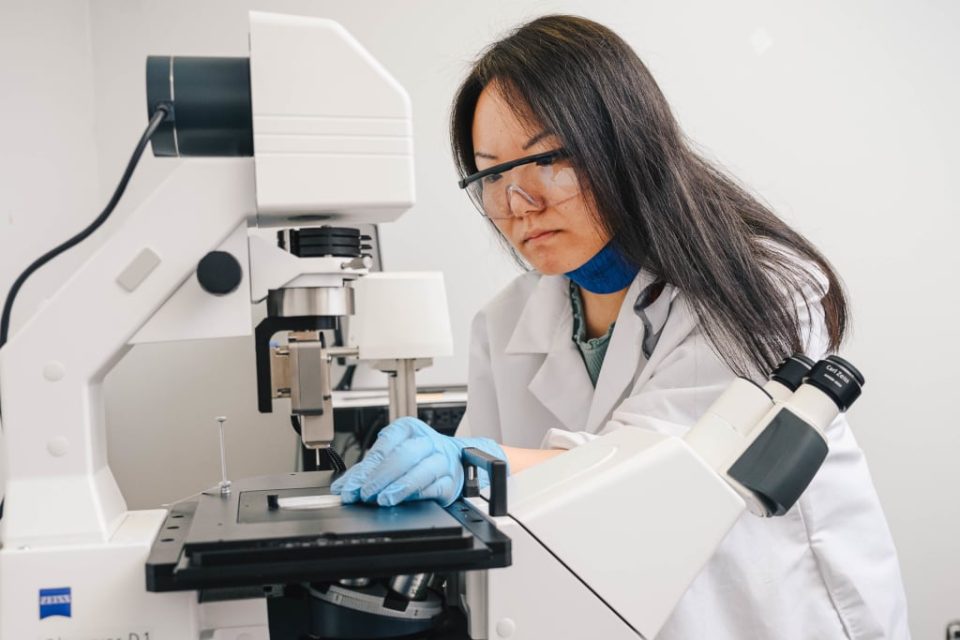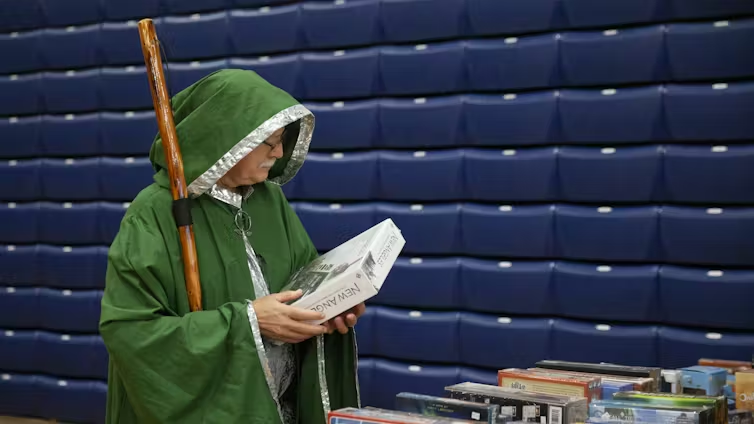|
Getting your Trinity Audio player ready...
|

There are only so many ways to heal a broken heart, at least medically speaking. But thanks to new research, a promising treatment may be on the way.
Just ask FIU postdoctoral researcher Lihua Lou, who has been named the 2023 Early Career Stop Heart Disease Researcher of the Year by the Florida Heart Research Foundation. She is conducting research as part of an international team called CELL-MET to see how lab-made patches of tissue could repair damaged heart muscles.
CELL-MET is the National Science Foundation Engineering Research Center in Cellular Metamaterials, led by Boston University. FIU and the University of Michigan are major team members.
“It is my true honor to be recognized as this year’s Early Career Stop Heart Disease Researcher,” Lihua said. “I am incredibly proud to be a member of this research team conducting interdisciplinary research to find an innovative treatment for heart disease.”
One person dies every 33 seconds in the United States from cardiovascular disease, according to the Centers for Disease Control and Prevention. One of the main barriers to fighting heart disease is that damaged heart muscle tissue does not regenerate easily on its own. The CELL-MET team’s idea to overcome this obstacle is to replace damaged cells using a patch made of lab-made cardiac tissue which, when placed onto a damaged heart, could infuse healthy cells into an injured area.
Lou is specifically researching the patch’s ability to resist deformation under stress and its other mechanical and material characteristics. She works alongside FIU Distinguished University Professor Arvind Agarwal, a co-principal investigator of the team.
“I am incredibly proud to see Dr. Lou acknowledged by the Florida Heart Foundation,” Agarwal said. “This award is a testament to her outstanding work ethic, team-first mentality and exceptional research abilities.”
With the award, Lou looks to develop a ‘golden standard’ for the mechanical properties of bioengineered cardiac tissue – a reference guide when creating heart bandages in the future. She will also work to create specialized equipment for measuring this data for cardiac tissue and similar tissues.
“Dr. Lou’s groundbreaking work and her unwavering dedication to addressing the challenges of heart disease positioned her as an exemplary candidate for our award,” said the Florida Heart Research Foundation’s Medical Advisory Committee in a joint statement. “Her contributions extend beyond her research endeavors. Dr. Lou’s active involvement in cross-institutional projects, including collaborations with various universities, showcases her commitment to collaborative scientific advancement.”
“Additionally, Dr. Lou’s mentorship of aspiring researchers and her prolific publication record of 22 journal papers underline her dedication to fostering scientific growth.”
Prior to FIU, Lou obtained a Master’s degree in textiles science and engineering, where she researched nanomaterials. She later earned a Ph.D. in environmental science, where she studied toxicology and how materials interact with the human body. She connects the dots across disciplines in her research today.
Other institutions involved in the research at CELL-MET include include Brown University, CNEA (Argentina), Columbia University, École Polytechnique Fédérale de Lausanne (Switzerland), Fort Valley State University, Harvard Medical School, National University of Ireland, NHS College, North Carolina State University, Queen’s University Belfast (Northern Ireland) and the Wyss Institute.






